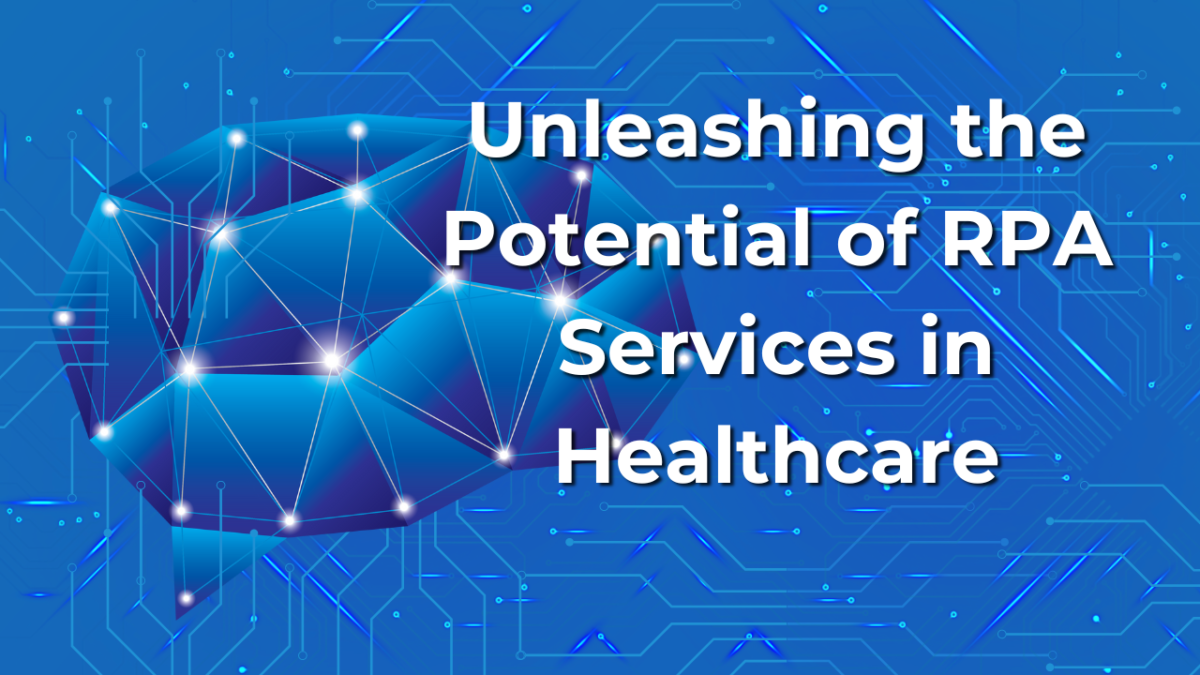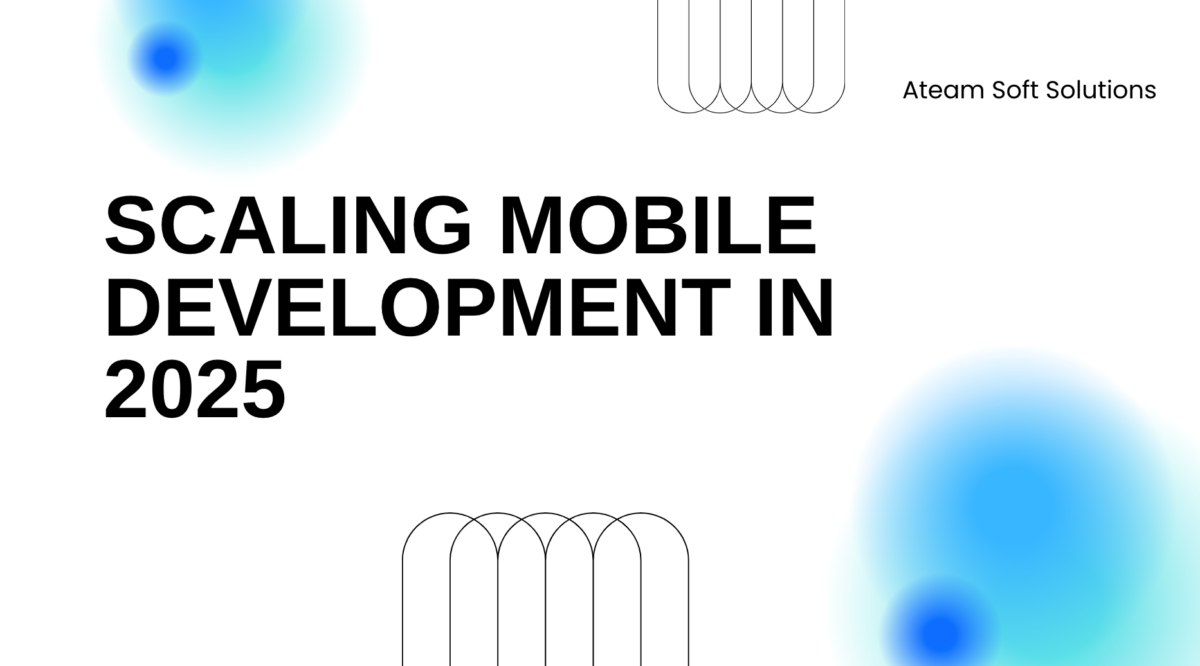This website uses cookies so that we can provide you with the best user experience possible. Cookie information is stored in your browser and performs functions such as recognising you when you return to our website and helping our team to understand which sections of the website you find most interesting and useful.
Unleashing the Potential of RPA Services in Healthcare

The healthcare industry stands on the brink of a significant metamorphosis, driven by automation and digital technologies. With the digital uptake fast-tracked by the COVID-19 pandemic, healthcare providers are increasingly turning to robotic process automation services to improve patient outcomes, boost efficiency, and curb expenses. This promising shift, however, brings its unique set of challenges, particularly around data privacy and security.
In the realm of Robotics Process Automation Services in Healthcare, mobile application development has become a key catalyst for unlocking the true potential of automation. Mobile applications tailored for healthcare providers and patients are revolutionizing the way medical services are delivered and accessed. These applications seamlessly integrate with RPA systems, enabling healthcare professionals to automate various administrative tasks such as appointment scheduling, patient registration, and billing processes. By reducing manual errors and eliminating time-consuming paperwork, RPA-powered mobile applications significantly enhance operational efficiency, enabling healthcare providers to focus more on patient care.
Robotic Process Automation: A Prerequisite, Not a Luxury in Healthcare
Over recent years, healthcare providers have identified the potential of RPA services to automate traditionally manual and labor-intensive processes. By using robotic process automation services to automate tasks such as patient account creation and appointment scheduling, providers can streamline their intake procedure, saving substantial time and effort. This efficiency translates to more face-to-face interaction with patients, culminating in enhanced care.
Furthermore, automating healthcare processes can revolutionize patient care by providing immediate access to patient records and lab results. This instant availability of critical data allows healthcare providers to cut down on wait times, improve accuracy, and make more informed, timely decisions.
Harnessing Salesforce for an All-inclusive Patient Experience with the Aid of RPA Companies
Healthcare providers can offer a comprehensive, 360-degree patient experience by fully utilizing Customer Relationship Management (CRM) platforms such as Salesforce, especially with the assistance of top RPA companies. The platform’s toolbox enables providers to keep the care team abreast of patient requirements, ensuring a more coordinated and personalized care experience.
Salesforce’s Health Cloud, in particular, is facilitating healthcare providers to integrate Electronic Medical Records (EMR) and HR data through RPA services. This integration allows for a seamless data flow, the reduction of data silos, and the enhancement of patient care outcomes.
For instance, in diabetes care management, RPA companies are greatly enhancing patient care through automated processes. A medical device firm has developed an economical bot that dispatches devices in regulation-compliant containers, showcasing the application of automation in both care delivery and adherence to regulations.
Addressing Staff Burnout through Healthcare Automation
Automation, particularly via robotic process automation services, can also mitigate staff burnout in healthcare, a persistent issue even pre-pandemic. By automating specialized roles in healthcare, providers can alleviate fatigue and trauma for staff, thereby improving care quality.
Additionally, healthcare automation can substantially boost efficiency and diminish manual labor in patient triaging. By employing triage bots, healthcare providers can expedite and improve accuracy in care, freeing human resources to concentrate on complex cases that require their expertise.
Prescription Bots: A Major Advancement in Medication Management
Another innovative application of automation in healthcare is the usage of prescription bots. These bots can monitor medication orders and delivery, aiding in preventing missed medication instances and enabling more specific patient follow-ups.
Healthcare providers are also using bots to collect patient feedback on their experiences with prescriptions and procedures. This method offers a more holistic view of outcomes, propelling improvements in care delivery and patient satisfaction.
Clinical Trials and Automation: A Match Made in Heaven
RPA companies are finding increasing relevance in clinical trials. Bots are being used to automate resource curation and follow-up appointments, alleviating the workload on trial staff and enhancing patient care.
For instance, Salesforce Health Cloud and EMR integration, powered by RPA services, can automate patient referral creation and record keeping. This not only streamlines healthcare processes but also ensures timely care for patients and a comprehensive, current view of patient data for providers.
Enhancing Accuracy and Patient Outcomes
The shift towards system automation improves accuracy and patient outcomes by collecting direct patient feedback and eliminating reliance on human memory. While intake coordinators visually inspect patient referral documents before manually adjusting any missed fields, Salesforce bots powered by RPA services collate and save data for staff to create tasks and view detailed information.
With prescription bots automatically placing orders for medication and providing tracking information to care coordinators, patient care becomes more efficient and error-free.
Conclusion
As the healthcare sector continues its evolution and digitalization, the role of RPA companies and their automation services is set to become even more critical. With Pfizer-BioNTech’s COVID-19 vaccine receiving full FDA approval, the need for healthcare providers to scale their services and reach a broader patient population has never been more pressing.
Despite the challenges, especially concerning data privacy and security, the potential of healthcare automation to enhance patient outcomes, increase efficiency, and reduce costs is evident. By strategically adopting automation technologies from reputed RPA companies and addressing the associated challenges, healthcare providers can redefine the care they deliver and establish new benchmarks for patient experience in the digital era.



